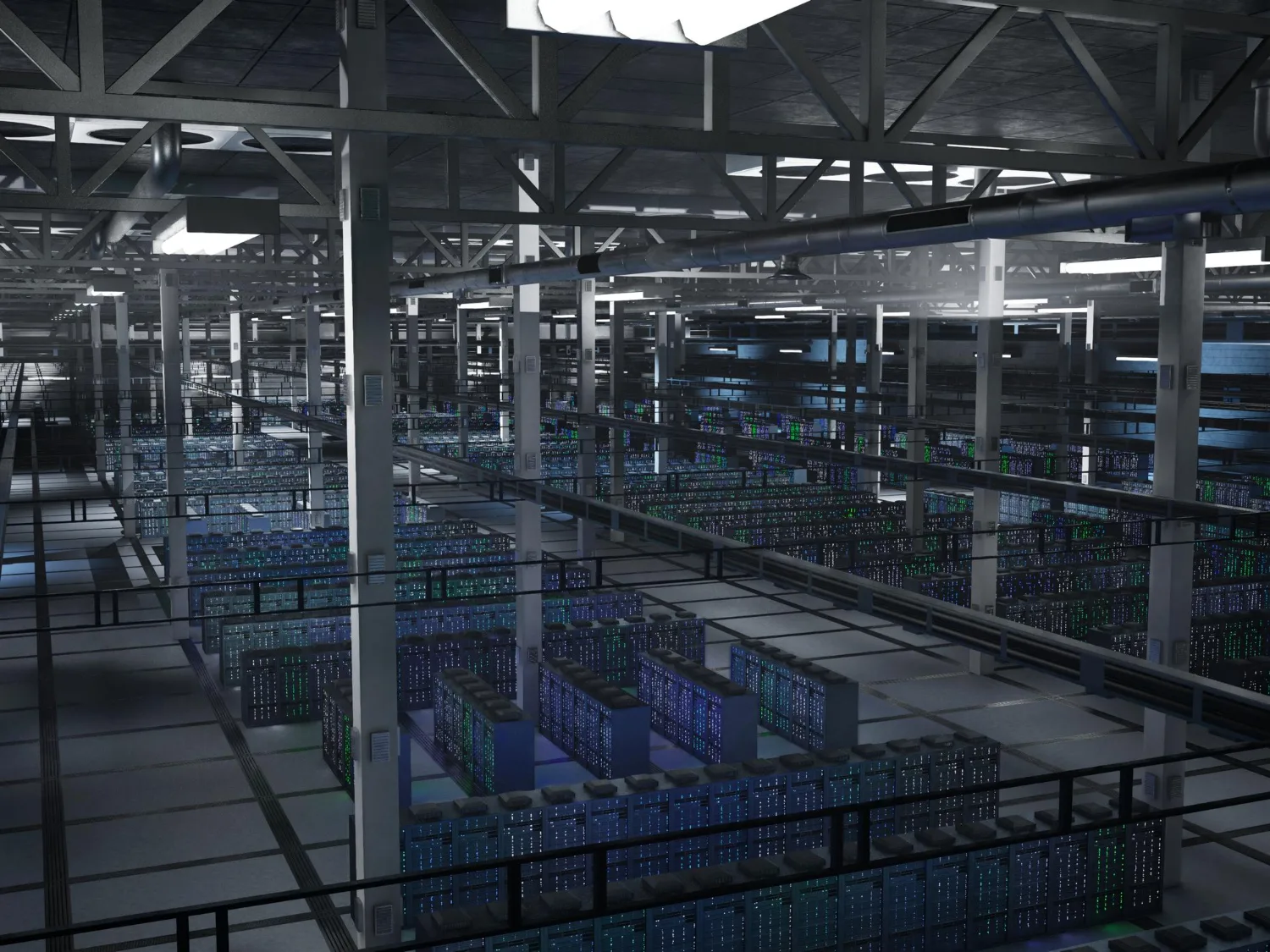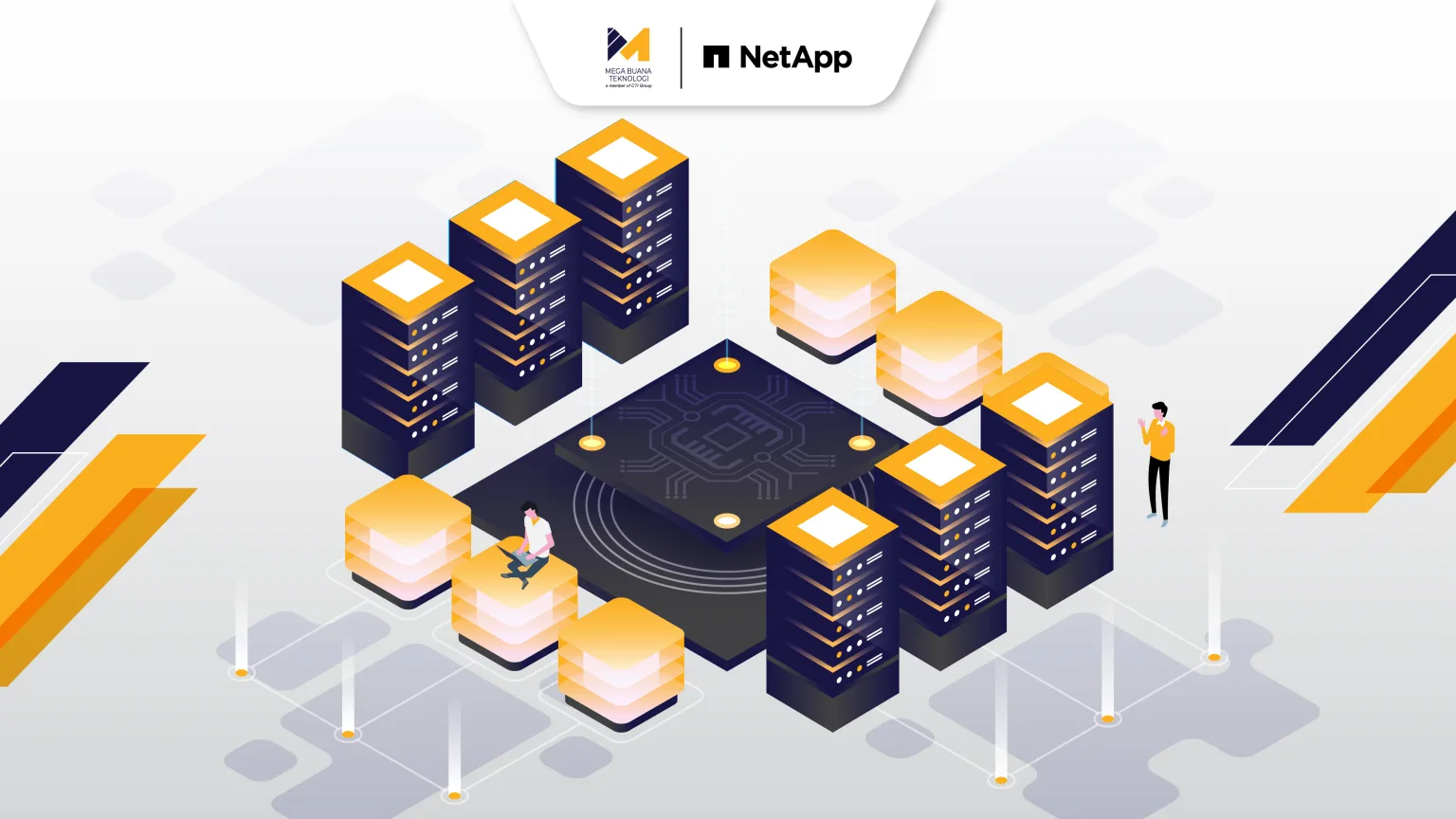Have you ever imagined what would happen if your company’s data storage system failed tokeep up with rapid business growth?
According to The Business Research Company (2025), the global enterprise storage market is projected to grow from USD 146.36 billion in 2024 to USD 159.11 billion in 2025, at a CAGR of ~8.7%. This growth highlights the critical role of enterprise storage for businesses striving to maintain performance, security, and scalable data infrastructure.
Enterprise data storage serves as the backbone for modern businesses to manage ever increasing data volumes, support mission-critical operations, analytics, and AI applications,while ensuring the system remains reliability, fast, and secure.
What is Enterprise Data Storage?
Enterprise data storage refers to large-scale storage systems designed specifically to meet the complex needs of modern companies. These systems act as the central repository for all enterprise data—from operational files to advanced analytics—ensuring fast and efficient performance even as data volumes grow exponentially.
Unlike traditional storage, enterprise-grade systems come equipped with advanced capabilities such as data replication, encryption, automated backup, and cloud integration. Each of these features plays a critical role in maintaining data availability and security, enabling continuous business operations even during system disruptions. With flexible and scalable architecture, companies can expand capacity anytime without sacrificing performance.
Why Do Businesses Need Modern Enterprise Storage?

In today’s digital-driven economy, data is the foundation of decision-making. Enterprise storage ensures that mission-critical information is always available whenever needed—empowering productivity, collaboration, and operational speed across departments.
Beyond availability, enterprise storage significantly boosts application performance and IT efficiency. Data analytics and processing can run faster, enabling businesses to make real-time, data-driven decisions. Integrated security features such as end-to-end encryption and automated threat detection protect against cyberattacks and human errors. The right storage solution allows businesses to operate more efficiently, securely, and adapt to evolving digital challenges.
Key Advantages of Enterprise Data Storage
Enterprise data storage provides a robust foundation for modern companies to handle large-scale data efficiently. Amid rapid data growth and the demand for instant access, these systems deliver strategic advantages to maintain system performance, security, and operational efficiency.
Here are the main benefits of enterprise data storage:
- High Performance: Handles large and complex workloads seamlessly—from transactional systems to intensive analytics.
- Stability and Reliability: Designed for maximum uptime, ensuring business systems remainavailable without disruption.
- Proactive Security: Protects data from internal and external threats through encryption, access control, and automated threat detection.
- Operational Efficiency: Centralized management optimizes IT resources for easier and more cost-effective data administration.
- Scalability: Expands seamlessly as data grows without compromising performance or availability.
With these combined advantages, enterprise data storage empowers companies o innovate faster, protect their digital assets, and ensure long-term, sustainable growth.
Understanding the Different Types of Enterprise Storage
In today’s data-driven business environment, no single storage type fits all needs. Every company has unique workloads, goals, and infrastructure requirements. Enterprise data storage comes in multiple forms, each customized for specific use cases—from small-scale applications to high-speed enterprise-grade infrastructures.
These are the five common types of enterprise storage:
Direct-Attached Storage (DAS)
DAS is a storage system directly connected to a server or computer without a network. It’ssuitable for smaller applications requiring fast and direct access to data. However, scalability is limited since it can only be accessed by one system at a time.
Network-Attached Storage (NAS)
NAS connects storage to a network, allowing multiple users to access and share files simultaneously. It’s ideal for collaborative environments, centralized backups, and file-sharing operations. NAS systems are easy to manage and highly space efficient.
Storage Area Network (SAN)
SAN is designed for enterprise environments demanding high performance and availability. It uses a dedicated high-speed network to connect servers and storage directly, making it the ideal choice for mission-critical applications such as large databases, virtualization, and real-time transactions requiring low latency and high throughput.
Software-Defined Storage (SDS)
Software-Defined Storage (SDS) separates data management software from its physical hardware, enabling deployment across multiple platforms without vendor dependency. This approach provides high flexibility and cost efficiency through centralized management, automation, and adaptability. SDS is ideal for large data centers or hybrid environments requiring scalability, performance, and full control over storage resources.
Hybrid Cloud Storage
Hybrid storage combines the reliability of on-premises storage with the scalability of cloud infrastructure. It allows businesses to optimize storage costs, safeguard sensitive data on-site, and leverage cloud capabilities for rapid recovery and flexible scalability. Today, the hybrid model has become the top choice for enterprises aiming to balance efficiency, flexibility, and long-term resilience.
How to Choose Efficient and Secure Enterprise Storage
Selecting the right enterprise storage solution requires a deep understanding of business objectives and data characteristics. Companies must assess workload types, performance requirements, and future growth projections. Factors such as capacity, access speed, and system durability play a vital role in ensuring long-term value.
Integration capabilities with hybrid or multi cloud environments are also essential. Modern solutions like NetApp AFF A-Series seamlessly connect on-premises infrastructure with public clouds—without compromising data security. This hybrid approach helps businesses optimizeoperational costs, maintain flexibility, and ensure data resides in the most efficient and accessible locations.
Read More: Hybrid Cloud Storage: A Smarter Way to Manage Data in the Digital Era
NetApp AFF A-Series: Reliable Enterprise Storage for the Modern Business
As businesses grow increasingly dependent on data and applications, the need for fast, reliable, and secure storage becomes critical. The NetApp AFF A-Series meets these challenges head-on, delivering superior performance, maximum data availability, and proactive protection that modern enterprises can rely on.
Key Advantages of NetApp AFF A-Series
- Exceptional Performance: Supports up to 40 million IOPS and throughput of up to 1 TBps, ensuring all workloads—from daily transactions to analytics and AI—run smoothly.
- Unmatched Reliability: With 99.9999% data availability and AQoS technology, the system minimizes downtime and ensures continuous business operations.
- Real-Time Security: Delivers >99% threat detection accuracy, integrated with SIEM/XDR systems for automated recovery and compliance with security regulations.
Benefits for Businesses
High Performance Across All Workloads: Manages massive and complex datasets without compromising speed or efficiency.
Maximum Efficiency and Cost Savings: Data deduplication and compression reduce storage costs while optimizing capacity.
AI-Ready and Hybrid-Cloud Integration: Enables seamless expansion, migration, and data utilization across on-premises and cloud environments.
Proactive AI-Powered Security: Continuously monitors and detects anomalies in real time to prevent data loss or compromise.
High-performance Features
- Unified & Hybrid Cloud Integration: Simplifies cross-platform data management across on-premises and cloud environments.
- Storage Efficiency: Optimized technologies such as deduplication and compression enhance utilization and cost-effectiveness.
- Intelligent Operations: Smart monitoring and analytics enable faster, data-driven IT decision-making.
- High Performance & Scalability: Designed to grow with your data without sacrificing speed or reliability.
- Comprehensive Data Protection: Encryption, automated backup, and disaster recovery ensure continuous data availability.
- Ransomware Resilience: Proactive ransomware protection with AI-driven anomaly detection, automatic blocking, and fast recovery through Snapshot technology.
With these features, benefits, and innovations, NetApp AFF A-Series empowers companies with the performance, security, and flexibility they need to navigate the data challenges of today and tomorrow.
Build a Secure and Scalable Data Foundation with NetApp & MBT!
Mega Buana Teknologi (MBT), part of CTI Group, is an authorized distributor of NetApp, delivering high-performance enterprise data storage solutions across various industries. Backed by certified professionals and extensive IT infrastructure expertise, MBT helps businesses ensure data remains secure, available, and efficiently managed throughout their digital transformation journey.
Get the NetApp AFF A-Series solution through MBT to accelerate your business performance and strengthen your data reliability. Contact us through this link today for consultation and implementation support optimized to your company’s storage needs.
Author: Moyna Farla Tsabitah
CTI Group Content Writer Intern




